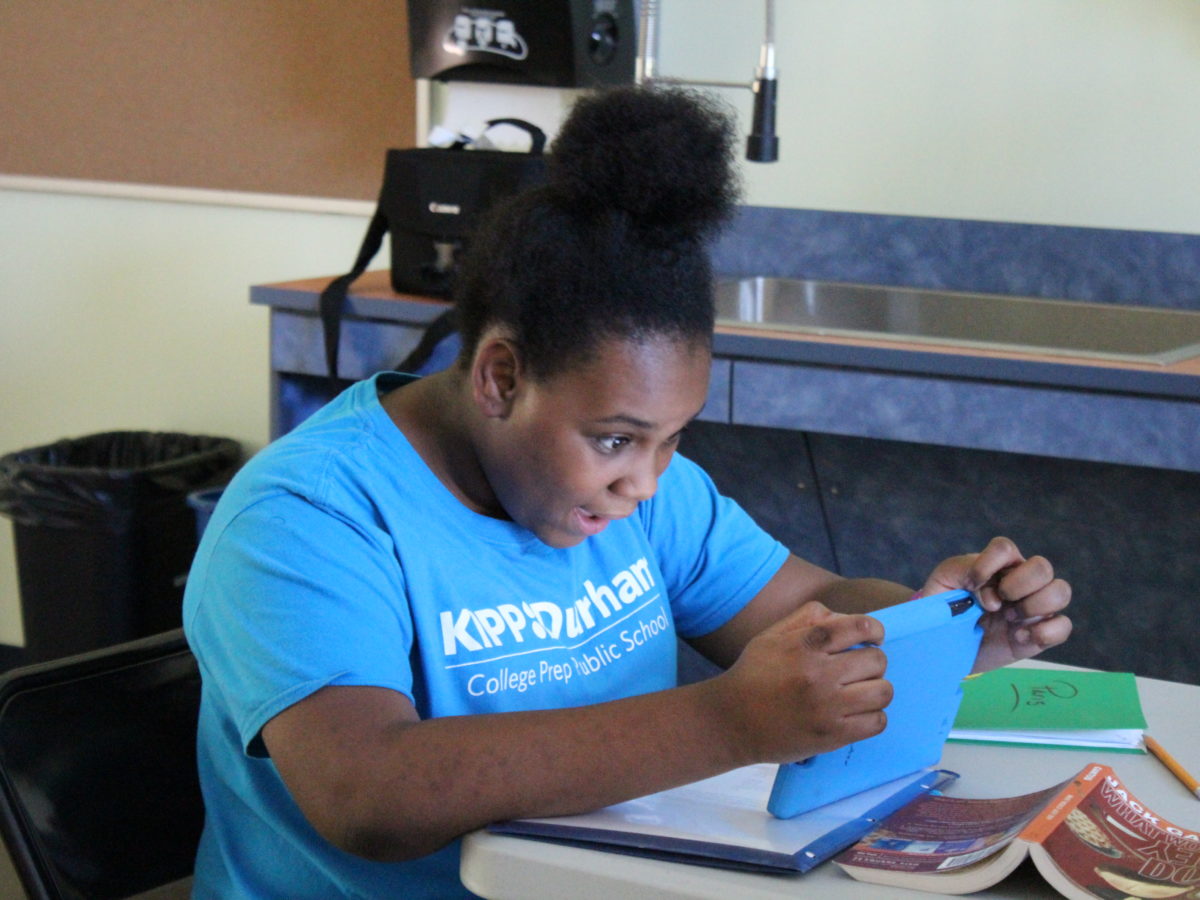In the face of COVID-19, Hill Learning Center expanding reading intervention to teachers and students across NC


When the pandemic struck in March 2020, and in-person learning came to a screeching halt, Hill Learning Center in Durham rose to the challenge and, in only three weeks, developed and released a version of its Hill Reading Achievement Program (HillRAP) that could be delivered remotely as long as the teacher and students had iPads and an internet connection. By summer, the HillRAP team had transformed its training model, which had required at least two days of in-person training, into a fully virtual professional learning experience. Previously, these efforts would have required many months, if not years, of planning, budgeting, testing, and refinement. But the need was urgent and real, and the experience inspired Hill to think and act more boldly than ever before.
“There is little doubt or dispute that the inability to read can have devastating effects on life outcomes for students, or that as a nation, we are not fulfilling our moral and societal obligation to teach all students to read. Unfortunately, these realities have all been exacerbated by the pandemic,” said Beth Anderson, executive director of Hill Learning Center. “To accelerate the reading development of students who have fallen even further behind due to COVID, quality, science-based core reading instruction must be supplemented by targeted, small-group intervention that can accurately identify and address foundational gaps.”
HillRAP leverages technology and quality professional development to deliver teacher-led, individualized, small-group instruction to students with persistent reading difficulties, including those with diagnosed and undiagnosed learning differences. Decades of research have shown that explicit phonics instruction benefits all early readers, particularly those who struggle to read. Hill’s instruction philosophy is based on the Orton-Gillingham approach, which focuses on teaching students the structure of language while incorporating precision teaching techniques including charting and graphing student progress. Using Hill assessments, an individualized instructional plan is created for each student. Progress is continually monitored as students work toward mastery of skills.
Read the full article on EdNC.com.